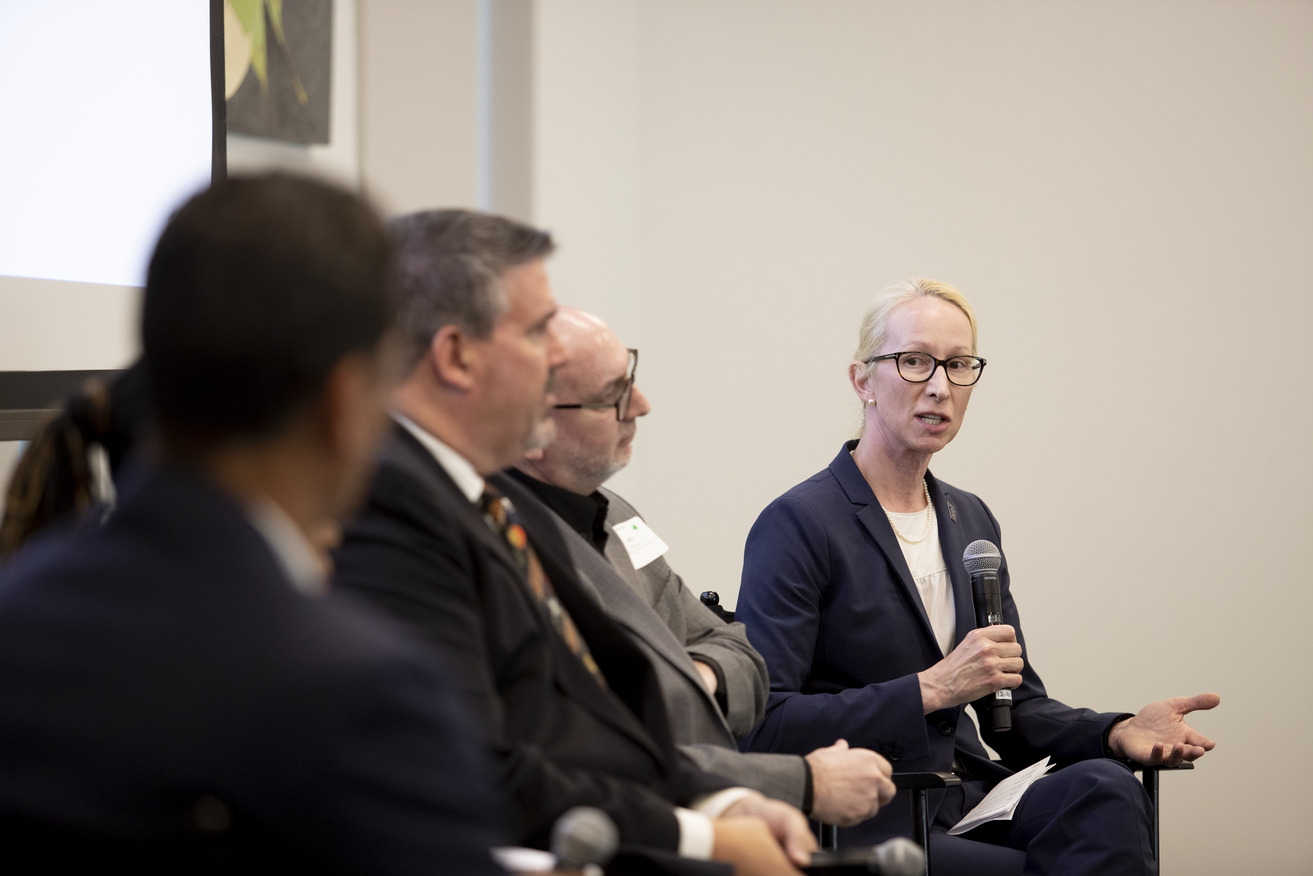As Philadelphia grapples with an uptick in gun violence, public safety continues to be a major concern.
With that in mind, Jennifer Griffin, vice president for Public Safety, Temple University, recently participated in a discussion on how businesses can help address the issue of violence.
“We are not going to be able to police our way out of this. I think that is the biggest thing,” Griffin said during a forum hosted by the Chamber of Commerce of Greater Philadelphia.
“Law enforcement deals with the end results,” she continued. “Typically, we are triage. That’s why we need good mental health providers. We need education. We need the medical system to be a part of it. We are just one part of the system.”
Griffin spoke about ways Temple is addressing student safety, such as partnering with the Philadelphia Police Department to conduct increased patrols, providing walking escorts, a shuttle system, a campus camera audit, a public safety app, and grants for private landlords to install lighting or cameras to improve security and an off-campus Best Nest Program to validate and rate properties with security features.
Griffin also highlighted the safety audit currently underway by 21CP Solutions, led by former Police Commissioner Charles Ramsey to strengthen public safety and policing on campus. Findings from the audit are expected by spring 2023.
She was joined by Erica Atwood, senior director of the Office of Policy and Strategic Initiatives for Criminal Justice and Public Safety, Managing Director’s Office, city of Philadelphia; Marc Collazzo, executive director, Fishtown Kensington Area Business Improvement District and Scott Sauer, chief operating officer, Southeastern Pennsylvania Transportation Authority (SEPTA). The panelists addressed how their organizations are working on safety issues.
Ken Anderson, the chamber’s vice president of civic affairs, opened the forum by citing Pew Charitable Trust data. According to Pew, 85% of residents polled say gun violence has gotten worse in the city and just 44% feel safe in their neighborhoods at night.
“Both socially and economically, a more collaborative approach is needed to improve safety and lives, and to stimulate recovery and economic prosperity throughout all of Philadelphia,” said Anderson, who moderated the discussion held at the University City Science Center.
Atwood talked about going beyond law enforcement to define public safety. She said there are four tenets to reducing gun violence: prevention, intervention, enforcement and reentry.
“If we do not define public safety with those four key tenets, we will never dig ourselves out of what is a symptom,” Atwood stated. “Gun violence is a symptom of what is larger divestments from poor communities, particularly poor communities of color.
“When we talk about the root causes of why we’re seeing this deadly symptom of gun violence, we have to talk about economic mobility and what does it mean not just to have a job, but to have a good job—for it to be purpose-driven, for it to have a trajectory for you,” she continued.
Sauer talked about how SEPTA is striving to make its transit system safe for riders. For instance, the agency has launched a Transit Watch app that allows customers to communicate directly with the police department. He also mentioned the agency’s SCOPE (Safety, Cleaning, Ownership, Partnership and Engagement) program. The initiative comprises all of SEPTA’s efforts to maintain a clean and safe system while assisting people who are experiencing homelessness, mental health issues and addiction.
Collazzo noted that the Fishtown Kensington Area Business Improvement District has been working with law enforcement and the Office of Homeless Services, the Crisis Intervention Team and Lutheran Settlement House to maximize those agencies’ effectiveness. The organization created a program called Fishtown Ambassadors, which is a group of individuals trained in de-escalation strategies to defuse a potentially violent situation. These ambassadors check in with businesses in the district.
“One of the things that you’re hearing from all of us, which is very important is collaboration,” Collazzo said. “None of this gets done in a vacuum. We can’t do it ourselves.”

